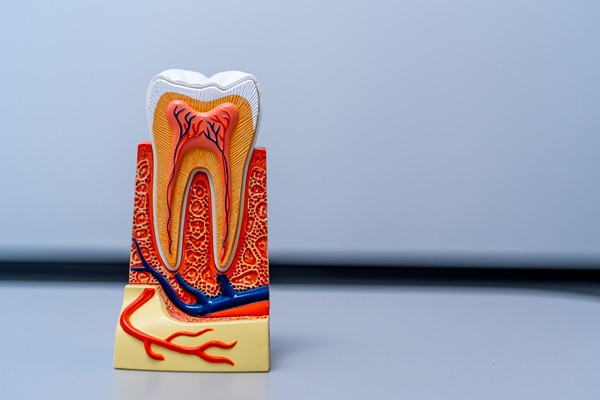A Root Canal Specialist Will Diagnose and Treat Tooth Pain

Wondering whether you should visit a root canal specialist? Read on to learn more. Pain that originates deep inside a tooth is nearly always excruciating, and you may be confused about the specific issue with your tooth and whether salvaging it is even possible. Tooth pain generally occurs because the nerve or pulp inside the tooth is exposed or infected. In cases of pulp infection, a dentist will usually recommend a root canal or endodontic therapy.
A dental health professional who specializes in root canal treatment is known as an endodontist. Seeing them for tooth pain may be advantageous since they can determine if the tooth's nerve is infected and advise on how to proceed.
When to visit a root canal specialist
A tooth that is infected and requires a root canal may cause excruciating pain as well as throbbing. This is not to be confused with temporary tooth sensitivity. The pain from an infected tooth lasts a long time and is generally worse at night. Although the pain may strike at any time, it can also be triggered by cold water hitting the tooth or simply a light touch.
The nerve is the most sensitive part of the tooth, and when bacteria find their way to that region, it may cause significant pain. An endodontist can remove the diseased nerve, bringing much-needed respite from the unbearable pain while also preventing the infection from spreading.
Root canal treatment
A dentist will assess if a root canal is necessary using one or more of the following methods: x-rays, cavity testing, selective anesthesia (to pinpoint the origin of discomfort while the patient is numb), thermal and electric testing, or tapping on the affected tooth. If it is determined that the patient requires root canal therapy, a root canal specialist will proceed to perform the procedure, which includes:
- X-rays to help determine the extent of the damage
- Use of anesthetic: the endodontist will use an anesthetic to relieve any discomfort the patient may be experiencing
- Creating an access hole in the tooth and then removing the diseased pulp
- The endodontist will disinfect the root canal chamber of the tooth to eradicate bacteria
- A permanent substance will be used to close the hole and seal the tooth
- At the end of the procedure, the tooth can be restored with a dental crown to protect the tooth
Final Thoughts
Tooth pain can be debilitating, but patients should not hold back in seeking dental help. Although many people are afraid of dental procedures, understanding the signs of an infected tooth will help you determine when to see a root canal specialist, in order to preserve the tooth and alleviate the suffering. If you are experiencing throbbing pain, swelling, or drainage along with the pain, it is time to seek professional help. Waiting too long might reduce the chances of saving the affected tooth, so get treatment as soon as possible.
Request an appointment here: https://santarosaendodontics.com or call Santa Rosa Endodontics at (707) 706-2143 for an appointment in our Santa Rosa office.
Check out what others are saying about our dental services on Yelp: Root Canal Treatment in Santa Rosa, CA.
Recent Posts
A non-surgical root canal is an endodontic procedure known for preserving a tooth affected by severe decay, infection, or trauma, all without incisions in the gum tissue. Many patients become anxious when they hear the term "root canal," yet modern techniques can provide a gentler experience than expected. Endodontists often recommend this treatment when a…
A general dentist can perform basic tasks in tooth care, such as X-rays, oral examinations, filling cavities, and extractions. However, patients may be referred to an endodontist for more complex work, such as certain root canals. When is it likely for a dentist to refer a patient to this dental specialist?While a filling can fix…
Root canal treatment is often the first line of defense for treating teeth with compromised pulp chambers. The pulp chamber is the innermost layer of a tooth, and it stores nerves, blood vessels, and connective tissues. The chamber is sealed off from the rest of the tooth to protect it against bacteria and other irritants…
A root canal can preserve and strengthen a severely damaged or infected tooth. When seeing a root canal dentist, asking informed questions can provide clarity, ease concerns, and improve treatment outcomes. Understanding the procedure helps make the experience more comfortable and ensures you are well-prepared for each step.While each patient's situation is unique, the following…


